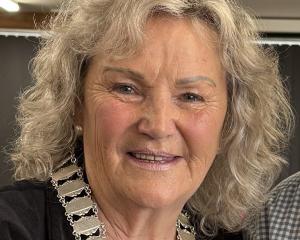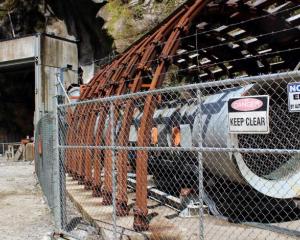
House sales are on the move, New Zealanders are flocking there on holiday and the call is out for shovel-ready workers.
Grey District's mayor Tania Gibson said decades of head-scratching over how to generate economic activity in the region stricken by decline appeared to have been partly solved by Covid-19.
"We have a lot of projects coming up as a result of PGF and shovel-ready funding, and I've been visiting businesses within my Mayor's Taskforce and there is a lot of employment happening out there at the moment.
"Employers are saying it's a struggle getting the right people into these jobs, which has been the issue for some time."
She said prospective home-owners better be quick if they wanted to capture a bargain.
Greymouth real estate agent Kevin O'Donnell said people around the country were cashing up, and moving west.
"Every day we are experiencing people from away saying, 'Good God, we just didn't realise what was down here', and I think that's something that's just going to grow."
As at February 2020, the median house price on the West Coast was $230,000.
The Coast saw the country's highest increase in regional house sales in July.
Real Estate Institute of New Zealand figures show the 57 percent increase in sales was the West Coast's biggest jump in 14 years.
Property report figures show a 24 percent hike in the asking price was also the country's highest in that month.
O'Donnell said it was still climbing.
"We're seeing more multi offers coming by the week. We're definitely seeing a lot of people from out of town coming and buying property.
"I mean we're probably seeing movement on a fortnightly basis, rather than monthly or six-monthly. It's moving very quickly."
The region was now also one of the country's hottest holiday spots.
The Tourism New Zealand Queen's Birthday Domestic Visitor Report showed it equalled Queenstown in popularity, with more than 20,000 visitors throughout the week leading up to and including the long weekend.
Development West Coast boss Heath Milne said they were reaping the benefits of people unable to travel elsewhere.
"We think it's down to the fact the Coast has been on people's bucket lists - maybe not at the top, when they might have had the Amalfi Coast in Italy or Japan on their bucket list, but they're unachievable now."
Pre and post Covid-19 government funding was creating new jobs in the engineering, farming and construction sectors.
Earlier this year, Gibson did not envisage a possible worker shortage.
"We have concern about heavy machinery drivers and civil contracting that we may not have enough people."
Moving to the Coast
Civil engineer Emily Wilson recently moved to Hokitika from a job as a Department of Conservation ranger in the lower South Island.
The 27-year-old door-knocked a firm specialising in residential geotechnical investigations, and starts next week.
"It wasn't hard to get a job. I just approached the engineering company to see if they would hire me, pretty much."
Finding a place to live was the next challenge, given the lack of available rentals.
"I'm still trying to decide between the options of temporary accommodation versus something more long-term.
"The rental market is a little scarce here and it's probably one of the only downsides I've come across so far."
Wilson compared the cost of living to that in Christchurch.
"But it is definitely on the cheaper side. The Coast is quite far from a lot of other places so when you do go out and do things you're probably going to be driving a bit more."
Milne said while the current interest in the Coast was heartening, it would take a longer term approach to keep up the economic momentum.
He believed there was potential also for the region to to help the country's looming debt.
"There's going to be huge demand for export receipts to pay this bill and the West Coast has got some really good resources that we can contribute to the recovery with.
"There's certainly a place for the extractive industries to come back into play and help pay that bill."












